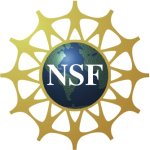Welcome CPATHi18n Partners!
2011 Participants Click Here!
Information about 2011 Workshop. Updated August 10, 2011
Click here to download and view the preliminary 2011 Pacific Rim Summer Workshop Brochure!

Click here to download and view the 2010 Pacific Rim Summer Workshop Brochure!
Information For 2010 Beijing Participants. Updated June 22, 2010

Summer 2010, we held the first Pacific Rim Summer Workshop at Peking University in Beijing, China. The Summer Workshop focused on Global Distributed Software Development, Cross-Cultural Communication and International Computer Ethics.
May 16-18, 2008 Portland, Oregon
October 24-26, 2008 Beijing, China
About CPATH i18n
The CPATH i18n project is an NSF funded collaborative research effort to create an international community of computer science departments, high tech industry, and international programs in the Pacific Rim. Together, we will explore a new model of computer science education that focuses on the knowledge, skills, and competencies necessary for professional success and leadership in a flat world. Our community will serve as a resource and model for growing similar communities throughout the world.
The results of our Pacific Rim community-building project will directly impact students at the participating institutions, and ultimately students at other institutions that join the growing internationalization movement. These students will have a tremendous head start and lasting advantage in a global world, whether in research or industry. In addition, an intercultural focus will attract the best and brightest students into computer science. These students will be well prepared to become future leaders and innovators, in command of both computer science and international collaborations. Internationalization will also broaden the appeal of computer science to a much more diverse population. Computer science will be seen as a pathway to a career not in a solitary cubicle but in the wide-open world.
Research in the fields identified as prime targets for internationalization will evolve in new directions. Internationalization of computer science education will provide students with expertise to tackle these new types of problems. Because scientific discovery is driven to a considerable degree by advances in computer science, students with global understanding of computer science will be better scientists, as well.
Internationalization will move our discipline towards the maturity and recognition it deserves, as more computer scientists move into leadership positions in commerce, education, and government.

